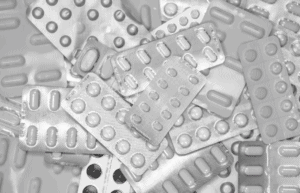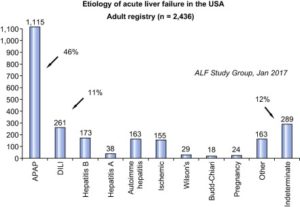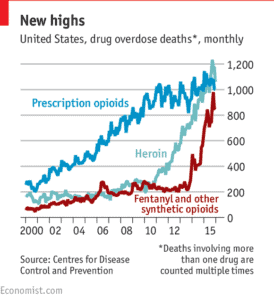History of Vicodin
Vicodin is a blended drug as it combines the synthetic opioid hydrocodone with acetaminophen, a common pain reliever found in Tylenol and Advil. Hydrocodone was patented in 1923 as an effective pain reliever and was widely administered throughout the medical community. Due to its unwavering popularity, Vicodin was introduced in 1978 as a less-potent alternative, with the opioid properties of hydrocodone being diluted with the much more mild acetaminophen. By the early 2000s, the dangers of Vicodin became undeniable. The hydrocodone component presented high levels of addiction and dependence while the acetaminophen component caused liver damage. According to the Cleveland Clinic, The proportion of Acute Liver Failure, or ALF, cases associated with acetaminophen increased from 28% in 1998 to 51% in 2003.
The Vicodin High
Vicodin is typically taken orally but can also be snorted. Vicodin produces a high in which the user experiences:
Confusion
Impaired coordination
Depressed breathing
Loss of balance
Difficulty speaking
Muscle weakness
Dizziness
Depressed heart rate
Side Effects of Vicodin Abuse
Long-term Vicodin abuse can cause lasting effects and irreversible damage. Such side effects include:
Depression
Memory loss
Chronic fatigue
Cardiovascular Issues
Insomnia
Seizures
Unconsciousness
Death
Vicodin Use in the United States
According to the National Center for Biotechnology Information, most of the 400 deaths due to acetaminophen poisoning each year result from misuse of the Vicodin or similar drugs. The graph below depicts the leading causes of acute liver failure and cites acetaminophen (APAP) as being the overwhelming leading cause among them.
The Centers for Disease Control additionally list Hydrocodone as one of the most common drugs involved in prescription opioid overdose deaths. The graph below shows prescription opioids as being the leading cause of overdose deaths throughout the 2000s, having only recently decreased to the same rate as fentanyl.
Vicodin Addiction Treatment
Vicodin is highly addictive and life-threatening when abused; therefore, it is extremely important to seek help immediately if you or a loved one is struggling with this addiction. At Asheville Recovery Center, a quality drug rehab in North Carolina, treatment specialists utilize a 12-step program and practice holistic rehabilitation.
Services at the center include:
Partial Hospitalization Program – At Asheville Recovery Center we offer a partial hospitalization program for clients who need post-residential treatment as well as for clients who need primary treatment but are unable to enroll in inpatient programs. Our PHP track offers a variety of therapeutic services and benefits to individuals in early recovery from substance addiction. Our day program is full-time, offering all of the clinical hours provided in residential treatment (from 9 am to 5 pm) with the benefit of allowing clients to return home to a structured sober living environment at night. This gives individuals the opportunity to build a community of peers and practice life skills, such as cooking, cleaning, and self-care, while still participating in immersive and intensive clinical addiction and trauma treatment.
Outpatient Rehabilitation – During intensive outpatient treatment, clients live at home or in a sober living residence which can help keep them accountable for their recovery commitment. Our staff coordinates with local, reputable sober living homes to ensure that our clients are living in a safe place and that their needs are being met, even when they are not at clinical sessions. During this time, clients are also encouraged to become involved in local twelve-step fellowships, to find sponsors, and to begin working the steps of recovery through participation in these groups. IOP is a place where clients can process their experiences in twelve-step fellowships and support one another in those individual journeys.
Addiction is difficult to overcome alone. If you feel that you or a loved one is struggling with Vicodin abuse, our specialists are on standby and ready to help. Call (828)383-0784 and speak with an addiction expert today.









